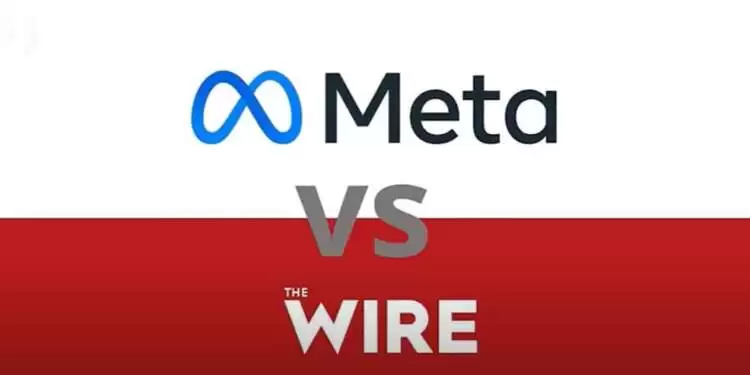This week saw The Wire’s report concerning an Instagram video and a Bharatiya Janata Party (BJP) leader raising many eyebrows and representatives of one of world’s most powerful tech conglomerates, Meta, dismissing Wire‘s investigation as “misleading and fabricated” in what turned into an extraordinary exchange of accusations and denial on Twitter.
It all started with a report published on Monday by The Wire, a widely known Indian news outlet that has made startling revelations in the past regarding the BJP’s exploitation of its social media prowess through apps specifically designed to spread extremist propaganda and coordinated disinformation campaigns – case in point, Tek Fog (though the app’s existence is still debated by BJP’s officials). The report, titled If BJP’s Amit Malviya Reports Your Post, Instagram Will Take it Down – No Questions Asked, claimed that Amit Malviya, who happens to be the president of the the BJP’s IT cell, has the privilege of getting posts wiped from Instagram with no official review process involved.
https://twitter.com/thewire_in/status/1579472153329573888?s=20&t=e1lh5XQwUb7ywHz3niwIyQ
The report surrounded a satirical video posted on “Superhumans of Cringetopia”, an account whose administrators refer to themselves as “a group of academic and journalists” and which has had at least seven posts removed from Instagram in the past few months. The video was taken down “just minutes” later after being reported by Malviya. That the BJP leader was benefiting unilaterally from Meta’s XCheck program (which reportedly exempts VIP users such as celebrities, politicians, journalists, and other high-profile persons, from the company’s enforcement rules) and Instagram removing the flagged post for “nudity and sexual content” when it contained none, were some of the highlights from the Wire report that renewed debate around Meta’s moderation policies online. The report carried a photo Wire claimed was of a leaked internal document about the company’s XCheck or Cross Check program.
https://twitter.com/thewire_in/status/1579871989002801153?s=20&t=rf1B29FKqG-440wOnFOaMw
The article instantly went viral and it was only a matter of time before Andy Stone, the communications director at Meta, refuted Wire’s claims as false information. Stone said the XCheck program “had nothing to do with the ability to report posts, explaining that “posts in question were surfaced for review by automated systems, not humans,” and that the internal document accessed by Wire “appears to be fabricated”. On Tuesday, however, Wire supplemented its report with a screenshot of what it said was a leaked email sent by Stone to his team, allegedly inquiring “how the hell” the XCheck document was leaked, and directing his team to place the journalists behind the story on a “watchlist”.
The screenshot triggered a series of tweets from Guy Rosen, who is the chief security officer at Meta, and Wire unwaveringly defending its reporting. Rosen scrapped the report as “a fabrication” and said the link and email visible in the Andy Stone email did not exist at the company. He also dismissed Wire’s watchlist claim.
I wanted to set the record straight about two stories run this week by @thewire_in with untrue claims about Meta’s content moderation operations and processes. tl;dr these stories are fabrications. (1/6)
— Guy Rosen (@guyro) October 11, 2022
In an official statement released on Wednesday, Meta reiterated that the X-Check has nothing to do with content removal and that the purported emails in the Wire articles were fake. The statement further added the URL in the screenshot was not in use and there exists no such “watchlist” at the firm as cited by Wire.
“We accept scrutiny of our content decisions, but we fundamentally reject these false allegations based on what we believe to be fabricated evidence. We hope that The Wire is the victim of this hoax, not the perpetrator.”
The episode has set off an intense debate on both the authenticity of contents provided in Wire’s reports and statements issued by Meta in response. Some experts questioned the credibility of Wire’s investigation — pointing out discrepancies in what has been cited as evidence and supporting Meta’s allegations of false information, but others supported the findings, including, of course, the Wire journalists, who termed Meta’s response an attempt to discredit the news outlet’s investigation.




